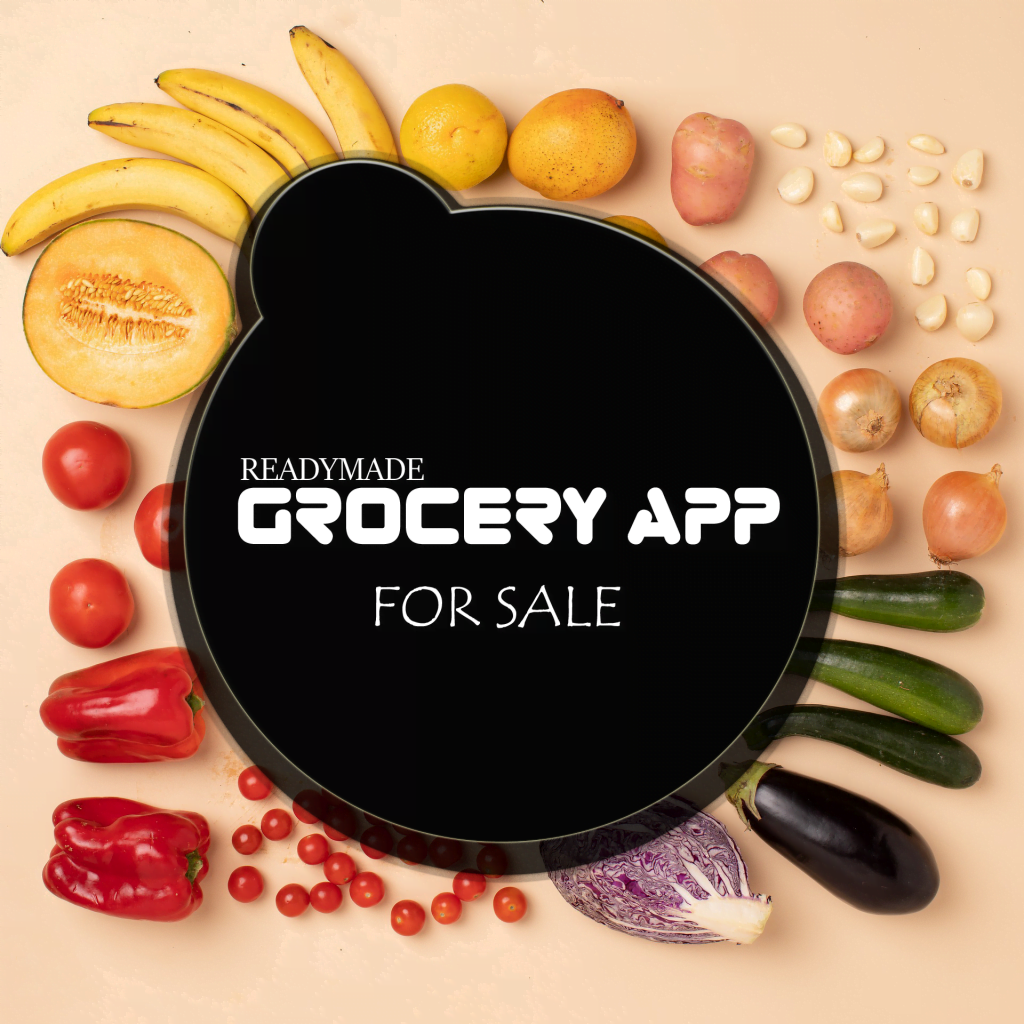Introduction : Introduction of “Marketplace business models”
A marketplace business model is a type of business model where a company provides an online platform that connects buyers and sellers in a specific industry or niche. The marketplace operator typically does not own the products or services being sold on the platform, but rather serves as an intermediary between buyers and sellers.
Marketplace business models have become increasingly popular in recent years, with companies such as Amazon, eBay, and Airbnb leveraging this model to build successful businesses.
In a typical marketplace business model, the platform operator earns revenue by charging a commission on each transaction that occurs on the platform. This commission can vary depending on the product or service being sold, but typically ranges from 5% to 15%. In addition to transaction fees, marketplace operators may also earn revenue through advertising or subscription fees.
The key benefit of a marketplace business model is that it allows buyers and sellers to connect in a centralized location, creating a more efficient and convenient buying and selling experience. This can lead to increased competition and lower prices for buyers, while providing sellers with access to a larger customer base and increased revenue potential.
Marketplace business models can be applied to a wide range of industries, including retail, travel, real estate, and professional services. However, building a successful marketplace requires careful planning, execution, and ongoing investment to attract and retain buyers and sellers and create a valuable and sustainable platform.
Types of marketplace business model
There are several types of marketplace business models that exist, each with its own unique characteristics and revenue streams. Here are some of the most common types:
- B2C (Business-to-Consumer) Marketplace: In this model, businesses or individual sellers offer products or services to consumers through a centralized platform. The platform operator takes a commission on each transaction that occurs on the platform.
- C2C (Consumer-to-Consumer) Marketplace: In this model, individual consumers offer products or services to other consumers through a centralized platform. The platform operator takes a commission on each transaction that occurs on the platform.
- B2B (Business-to-Business) Marketplace: In this model, businesses or individual sellers offer products or services to other businesses through a centralized platform. The platform operator takes a commission on each transaction that occurs on the platform.
- Peer-to-Peer Marketplace: In this model, buyers and sellers directly connect with one another without the need for a centralized platform. The platform operator may still take a commission on each transaction that occurs on the platform, or may earn revenue through advertising or subscription fees.
- Rental Marketplace: In this model, individuals or businesses offer rental services for physical goods or properties. The platform operator takes a commission on each rental transaction that occurs on the platform.
- Service Marketplace: In this model, individuals or businesses offer professional services to consumers or other businesses through a centralized platform. The platform operator takes a commission on each transaction that occurs on the platform.
B2C (Business-to-Consumer) Marketplace business model
A B2C (Business-to-Consumer) marketplace is a type of marketplace business model where businesses or individual sellers offer products or services directly to consumers through a centralized online platform. B2C marketplaces are designed to provide consumers with easy access to a wide range of products and services from various sellers, while offering businesses and individual sellers with a platform to reach a larger customer base.
In a B2C marketplace, the platform operator typically takes a commission on each transaction that occurs on the platform. The commission can vary depending on the product or service being sold, but it usually ranges from 5% to 15% of the total transaction value. In addition to transaction fees, B2C marketplace operators may also earn revenue through advertising or subscription fees.
Some examples of B2C marketplaces include Amazon, Etsy, and Zillow. These platforms offer consumers access to a wide range of products and services, including books, handmade crafts, and real estate listings, from a variety of sellers. B2C marketplaces often provide features such as customer reviews, product recommendations, and search filters to help consumers find the products they are looking for.
For businesses and individual sellers, B2C marketplaces offer an opportunity to reach a large and diverse audience of potential customers without the need to build their own website or storefront. B2C marketplaces can also provide valuable data and insights into consumer behavior, allowing businesses to make more informed decisions about their product offerings and marketing strategies.
However, B2C marketplaces also come with their own set of challenges. Competition on the platform can be intense, and sellers may need to compete on price, customer service, and product quality to stand out. Additionally, B2C marketplaces may have strict rules and policies around product listings, customer service, and payment processing, which can be time-consuming and expensive for sellers to comply with. Overall, B2C marketplaces can be a valuable and profitable channel for businesses and individual sellers, but it is important to carefully consider the costs and benefits before deciding to participate in a B2C marketplace.
C2C (Consumer-to-Consumer) Marketplace business model
A C2C (Consumer-to-Consumer) marketplace is a type of marketplace business model where individual consumers can sell products or services to other consumers through a centralized online platform. These platforms provide an opportunity for individuals to turn their unused or unwanted items into cash, while also giving buyers access to a wide range of products and services that they may not be able to find in traditional retail settings.
In a C2C marketplace, the platform operator typically takes a commission on each transaction that occurs on the platform. The commission can vary depending on the product or service being sold, but it usually ranges from 5% to 15% of the total transaction value. In addition to transaction fees, C2C marketplace operators may also earn revenue through advertising or subscription fees.
Some examples of C2C marketplaces include eBay, Poshmark, and Craigslist. These platforms allow individuals to sell a wide variety of products and services, including clothing, electronics, and freelance services, directly to other consumers. C2C marketplaces often provide features such as user ratings, seller profiles, and search filters to help buyers find the products and services they are looking for.
For individual sellers, C2C marketplaces offer an opportunity to turn unused or unwanted items into cash, and can also provide a platform to start a small business or side hustle. C2C marketplaces can also be a valuable source of feedback and insights into customer behavior, allowing sellers to improve their product offerings and marketing strategies over time.
B2B (Business-to-Business) Marketplace business model
A B2B (Business-to-Business) marketplace is a type of marketplace business model where businesses can buy and sell products or services to other businesses through a centralized online platform. B2B marketplaces are designed to provide businesses with a more efficient and streamlined way to source products and services, while also offering suppliers with a platform to reach a larger customer base.
In a B2B marketplace, the platform operator typically takes a commission on each transaction that occurs on the platform. The commission can vary depending on the product or service being sold, but it usually ranges from 1% to 5% of the total transaction value. In addition to transaction fees, B2B marketplace operators may also earn revenue through subscription fees, premium services, or advertising.
Some examples of B2B marketplaces include Alibaba, ThomasNet, and Grainger. These platforms offer businesses access to a wide range of products and services, including raw materials, equipment, and software, from a variety of suppliers. B2B marketplaces often provide features such as supplier ratings, product comparison tools, and request for quote systems to help businesses find the products and services they need.
For businesses, B2B marketplaces offer an opportunity to streamline their procurement processes and reduce costs, while also gaining access to a wider range of suppliers and products. B2B marketplaces can also provide valuable data and insights into supplier behavior, allowing businesses to make more informed decisions about their procurement strategies.
However, B2B marketplaces also come with their own set of challenges. Competition on the platform can be intense, and suppliers may need to compete on price, product quality, and customer service to stand out.
Additionally, B2B marketplaces may have strict rules and policies around product listings, supplier profiles, and payment processing, which can be time-consuming and expensive for suppliers to comply with. Overall, B2B marketplaces can be a valuable and profitable channel for businesses and suppliers, but it is important to carefully consider the costs and benefits before deciding to participate in a B2B marketplace.
Peer-to-Peer Marketplace business model
A peer-to-peer (P2P) marketplace is a type of marketplace business model where individuals can buy and sell products or services directly to other individuals through a centralized online platform. P2P marketplaces are designed to facilitate direct transactions between buyers and sellers, without the need for intermediaries such as retailers or wholesalers.
In a P2P marketplace, the platform operator typically takes a commission on each transaction that occurs on the platform. The commission can vary depending on the product or service being sold, but it usually ranges from 5% to 15% of the total transaction value. In addition to transaction fees, P2P marketplace operators may also earn revenue through advertising or subscription fees.
Some examples of P2P marketplaces include Airbnb, Uber, and TaskRabbit. These platforms offer individuals access to a wide range of products and services, including lodging, transportation, and freelance services, directly from other individuals. P2P marketplaces often provide features such as user ratings, profiles, and search filters to help buyers find the products and services they are looking for.
For individuals, P2P marketplaces offer an opportunity to earn extra income by providing products or services that they already possess, such as a spare bedroom or a car. P2P marketplaces can also provide a platform for individuals to start a small business or side hustle. Additionally, P2P marketplaces can provide buyers with more personalized and unique products and services that they may not be able to find in traditional retail settings.
However, P2P marketplaces also come with their own set of challenges. Competition on the platform can be intense, and sellers may need to compete on price, quality, and customer service to stand out.
Additionally, P2P marketplaces may have strict rules and policies around product listings, customer service, and payment processing, which can be time-consuming and expensive for sellers to comply with. Overall, P2P marketplaces can be a valuable and profitable channel for individuals, but it is important to carefully consider the costs and benefits before deciding to participate in a P2P marketplace.
Rental Marketplace business model
A rental marketplace is a type of marketplace business model where individuals or businesses can rent out their products or services to others through a centralized online platform. Rental marketplaces are designed to facilitate transactions between renters and suppliers, allowing renters to access a wide range of products and services for a short period of time without having to purchase them outright.
In a rental marketplace, the platform operator typically takes a commission on each transaction that occurs on the platform. The commission can vary depending on the product or service being rented, but it usually ranges from 10% to 30% of the total rental value. In addition to transaction fees, rental marketplace operators may also earn revenue through subscription fees, premium services, or advertising.
Some examples of rental marketplaces include Rent the Runway, Turo, and Airbnb Experiences. These platforms offer renters access to a wide range of products and services, including designer clothing, cars, and unique travel experiences, from a variety of suppliers. Rental marketplaces often provide features such as supplier ratings, product comparison tools, and insurance to help renters find the products and services they need.
For suppliers, rental marketplaces offer an opportunity to monetize their underutilized assets, such as a spare room or a car. Rental marketplaces can also provide a platform for suppliers to start a small rental business or side hustle. Additionally, rental marketplaces can provide suppliers with valuable data and insights into customer behavior, allowing them to make more informed decisions about their rental strategies.
However, rental marketplaces also come with their own set of challenges. Suppliers may need to compete on price, product quality, and customer service to stand out, and may also need to deal with the logistics of shipping and maintenance.
Additionally, rental marketplaces may have strict rules and policies around product listings, supplier profiles, and payment processing, which can be time-consuming and expensive for suppliers to comply with. Overall, rental marketplaces can be a valuable and profitable channel for both renters and suppliers, but it is important to carefully consider the costs and benefits before deciding to participate in a rental marketplace.
Service Marketplace business model
A service marketplace is a type of marketplace business model where individuals or businesses can offer their services to customers through a centralized online platform. Service marketplaces are designed to facilitate transactions between service providers and customers, allowing customers to access a wide range of services from a variety of providers.
In a service marketplace, the platform operator typically takes a commission on each transaction that occurs on the platform. The commission can vary depending on the service being offered, but it usually ranges from 10% to 20% of the total service value. In addition to transaction fees, service marketplace operators may also earn revenue through subscription fees, premium services, or advertising.
Some examples of service marketplaces include Upwork, TaskRabbit, and Thumbtack. These platforms offer customers access to a wide range of services, including freelance work, home services, and professional services, from a variety of providers. Service marketplaces often provide features such as provider ratings, project management tools, and escrow payment systems to help customers find the services they need.
For service providers, service marketplaces offer an opportunity to monetize their skills and expertise, and to reach a wider audience than they would be able to on their own. Service marketplaces can also provide a platform for providers to start a small service business or side hustle. Additionally, service marketplaces can provide providers with valuable data and insights into customer behavior, allowing them to make more informed decisions about their service offerings.





 Mr. Abhinay is Managing Director at Appok Infolabs.
Having12+ years of experiance in AI. | VR. | ML. and Expertise in Cloud computing | Digital marketing | Search engine optimisation.
Mr. Abhinay is Managing Director at Appok Infolabs.
Having12+ years of experiance in AI. | VR. | ML. and Expertise in Cloud computing | Digital marketing | Search engine optimisation.